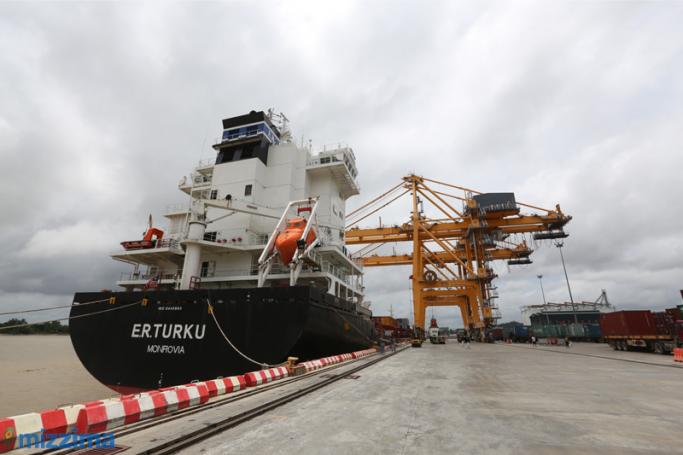After international banks revealed a US blacklisted Myanmar billionaire ran the country’s largest shipping port, a workaround has been devised that will allow trade to continue through the port.
In November, international banks complained they can’t finance trade that goes through the port terminal because it is operated by Asia World owner Steven Law, the son of a deceased heroin kingpin, who is on the US sanctions list.
US State Department officials have consulted Congress about adjustments to the sanction policies, which an administration official said could take effect as early as next week, according to the Associated Press (AP).
The Obama administration does not want to cause economic damage to the nascent Myanmar economy or to the ability of the new incoming leader, Aung San Suu Kyi, to promote growth and stability.
The workaround will mean allowing international banks to perform financial transactions involving the thousands of companies who use the port facility for exporting and importing goods.
According to columnist Josh Rogin, a Bloomberg View columnist, the US Treasury Department’s Office of Foreign Assets Control is set to issue a general license that would in effect give permission for US businesses and banks to pay fees for the use of the Asia World port in Yangon, even though the money flows into the coffers of Asia World.
Without a workaround, foreign institutions could also be affected. About a dozen international banks that have a US presence, mostly European, have been stung by more than $14 billion in U.S. penalties since 2009 for various sanctions violations, according to a report by Reuters.
The port terminal, south of the main city of Yangon, is run by Law, who heads Asia World, one of Myanmar’s largest conglomerates, which grew to its present dominance during the country’s rule by dictatorial juntas. It was placed on the sanctions list in 2011.
In November, the revelation about his role in the terminal port was revealed by Citi Corp Bank officials who were investigating financial documents related to the port. Citi alerted other banks, and their compliance officers warned that further financing could violate U.S. sanctions.
Two associations representing many of the world’s largest commercial banks, The Clearing House and The Bankers Association for Finance and Trade, have requested a sanctions workaround in a letter to US Treasury’s Office of Foreign Assets Control, the AP reported.
Cutting off financing of shipments handled by Law's firm “could amount to a de facto trade embargo" because half of all Myanmar’s trade flows through the Asia World terminal, the banking associations said in a letter.
Sources quoting the State Departmet said the administration will not propose taking Law or any sanctioned individual or entity off the blacklist and allow them to trade directly with U.S. companies.
Asia World was created in 1992 by Law’s father, the late Lo Hsing Han, who US officials named as one of the world’s key heroin traffickers. He died in 2013.
The father and son were put on the Treasury’s Specially Designated Nationals in 2008. Many senior officials, businessmen and companies linked to the junta remain on the list, and are barred from holding assets in the U.S. financial system or doing business with U.S. companies.
It’s hard to gauge what impact the difficulties of the banks complying with sanctions has had on trade, officials said.
With the election of the incoming new National League for Democracy government in March, more trade restrictions are expected to be lifted.
The Obama administration suspended broad US restrictions on investment and trade with Myanmar three years ago to reward steps toward political and economic reform, but it says it wants to see a smooth post-election transition to a new government in 2016 before making any dramatic changes to the targeted sanctions that remain.
You are viewing the old site.
Please update your bookmark to https://eng.mizzima.com.
Mizzima Weekly Magazine Issue...
14 December 2023
Spring Revolution Daily News f...
13 December 2023
New UK Burma sanctions welcome...
13 December 2023
Spring Revolution Daily News f...
12 December 2023
Spring Revolution Daily News f...
11 December 2023
Spring Revolution Daily News f...
08 December 2023
Spring Revolution Daily News f...
07 December 2023
Diaspora journalists increasin...
07 December 2023
Myanmar migrant workers arrested in Mae Sot












